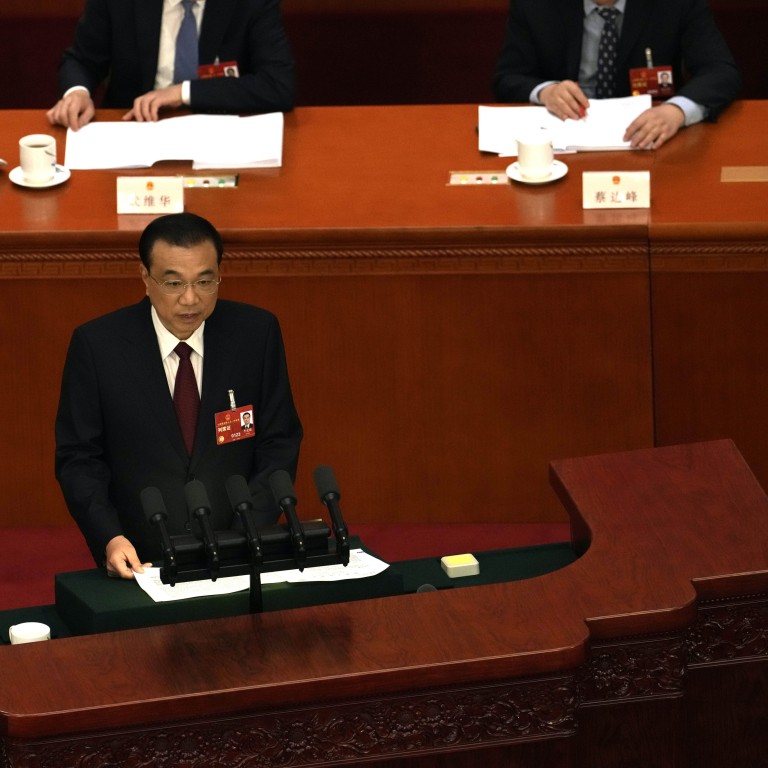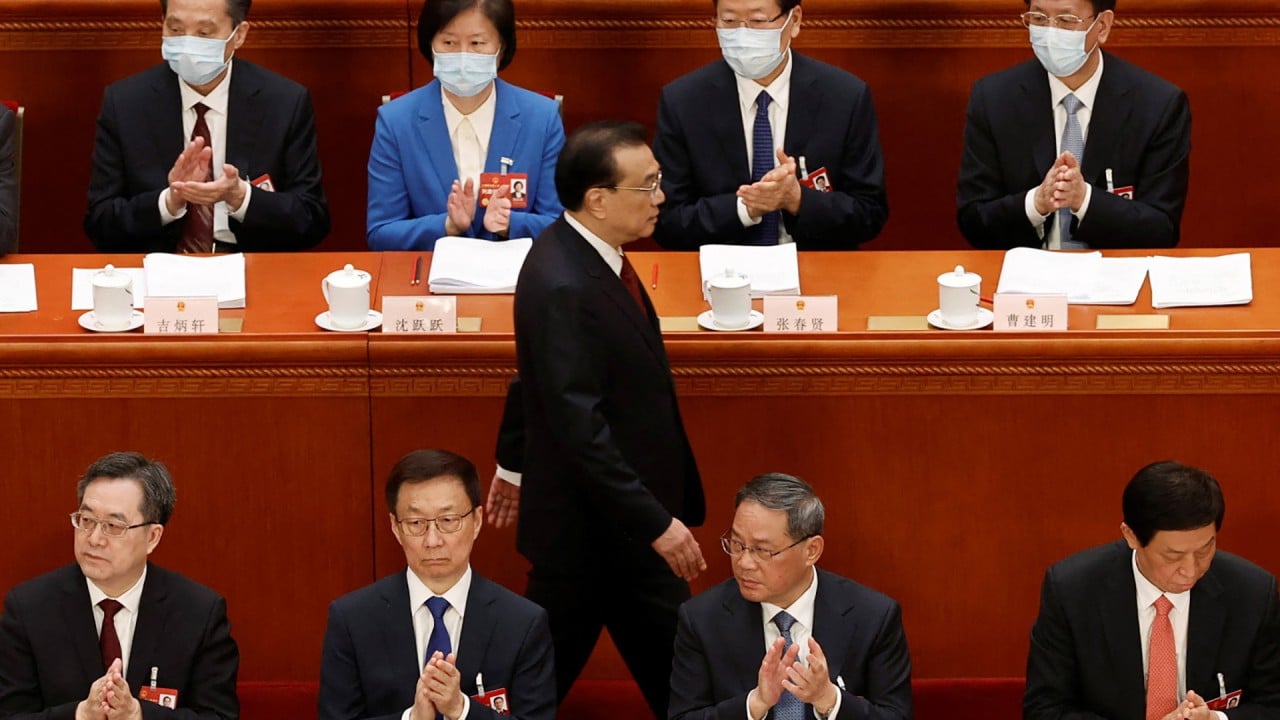
Goldman: China’s new financial watchdog to prevent ‘regulatory arbitrage’ by giant firms like Citic, Ant Group
- China’s proposed new watchdog will level up regulatory requirements and integrate efforts to oversee multi-sector financial firms like Ant and Citic Group, US bank says
- The revamp is part of a broader reshuffle of government departments proposed by Premier Li Keqiang to China’s ongoing legislative meetings for approval
“We see the proposals as a ‘consolidation’ of financial regulations to strengthen institutional supervision, the supervision of behaviours and the supervision of functions,” Yang Shuo, a Hong Kong-based analyst at the US bank, said in a report on Wednesday. “We expect more measures on liquidity and capital to prevent regulatory arbitrage [by] these financial conglomerates.”
The new commission under the State Council will replace the CBIRC. Other major shake-ups include the creation of a data bureau, the restructuring of the technology and science ministry, and a 5 per cent cut in government staff numbers.
China’s financial sector is now viewed as big enough to hold sway over its economy. The combined assets owned by banks and insurance companies total 400 trillion yuan (US$57.4 trillion) and the total market capitalisation of onshore stocks amounts to US$11 trillion.
‘Two sessions’: can new premier stir market optimism in China reopening bets?
Meanwhile, the elevation of the China Securities Regulatory Commission (CSRC) to a direct government agency under the State Council – instead of a semi-direct body currently – suggests the watchdog will play a bigger role in aiding China’s pivot to technological innovation by speeding up the pace of stock and bond sales, according to Soochow Securities.
The creation of the new national regulatory commission “will reduce the difficulty of coordination between multiple departments and multiple regulatory standards, and improve regulatory efficiency”, said Tao Chuan, a Soochow Securities analyst in Shanghai. “The upgrade of the CSRC’s status means rising priority for expanding direct financing to support the economy and technological innovation.”
Soochow Securities made a “buy” call on brokerage and insurance stocks, saying that the reshaping of China’s financial regulatory framework has underscored the rising importance of the capital market among top policymakers, and its more transparent supervision will bolster the business operations of leading industry players. Its main recommendations included East Money Information, China Pacific Insurance and Ping An Insurance.
Chinese firms only bright spot for BofA, Goldman amid Asia earnings letdown
The regulatory revamp also comes just weeks after China expanded a registration-based mechanism for initial public offerings to all companies seeking listings. Under the new system, issuers are allowed to freely price the stock on offer based on market demand rather than price caps set by the regulator.
The CSRC will assume full authority for approvals for corporate bonds in the future, taking over from the nation’s top planning body, according to the proposed restructuring plan unveiled on Tuesday.
“The reform bill has removed the blind spots on the regulatory front,” said Chen Fu, an analyst at GF Securities in Shenzhen. “It will do good for the healthy development of the financial industry by putting the expansion of direct financing on par with the prevention of financial risks. Rule-compliant financial institutions will benefit more.”
‘Two sessions’: coal at core of China’s power mix despite clean energy push
The current round is the ninth reform of institutions under China’s State Council since 1982. In the last shuffle in 2018, the CBIRC was created after the merger of two regulators.
“This proposed new national regulatory body will be in the spotlight, given its consolidated authority over financial institutions, and the potential to lead financial reform, particularly on the risk clean-up front,” Goldman’s Yang said in his report.


